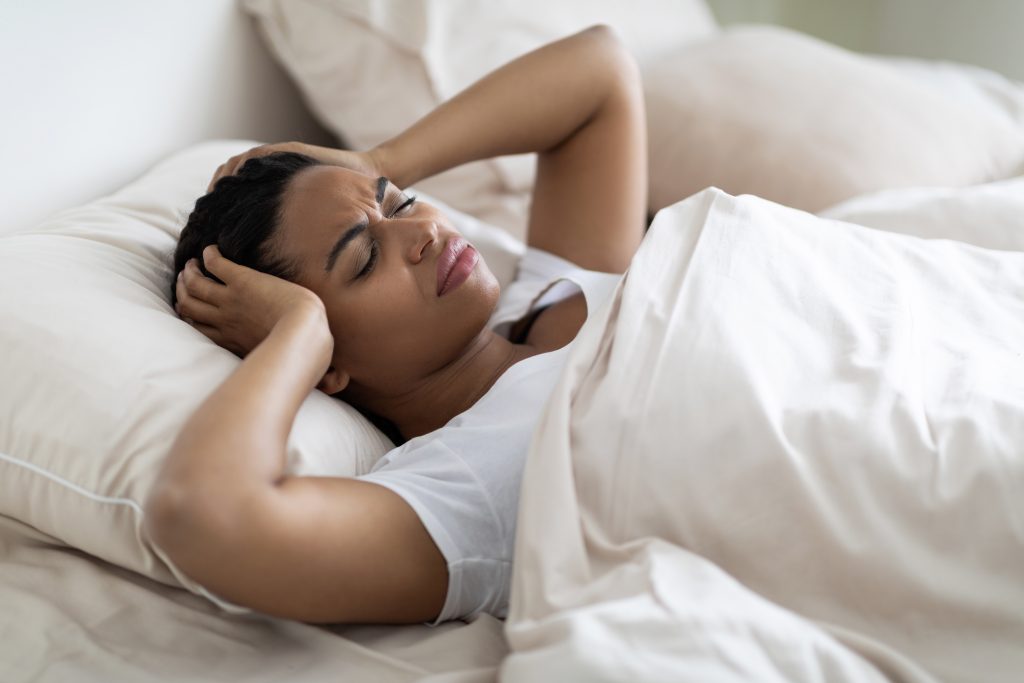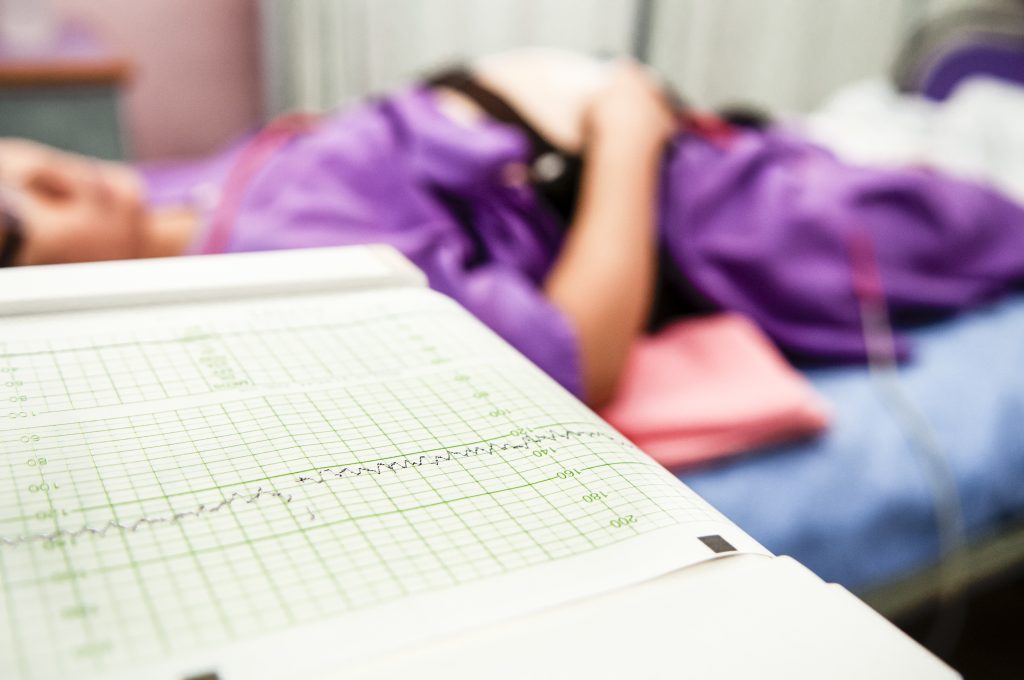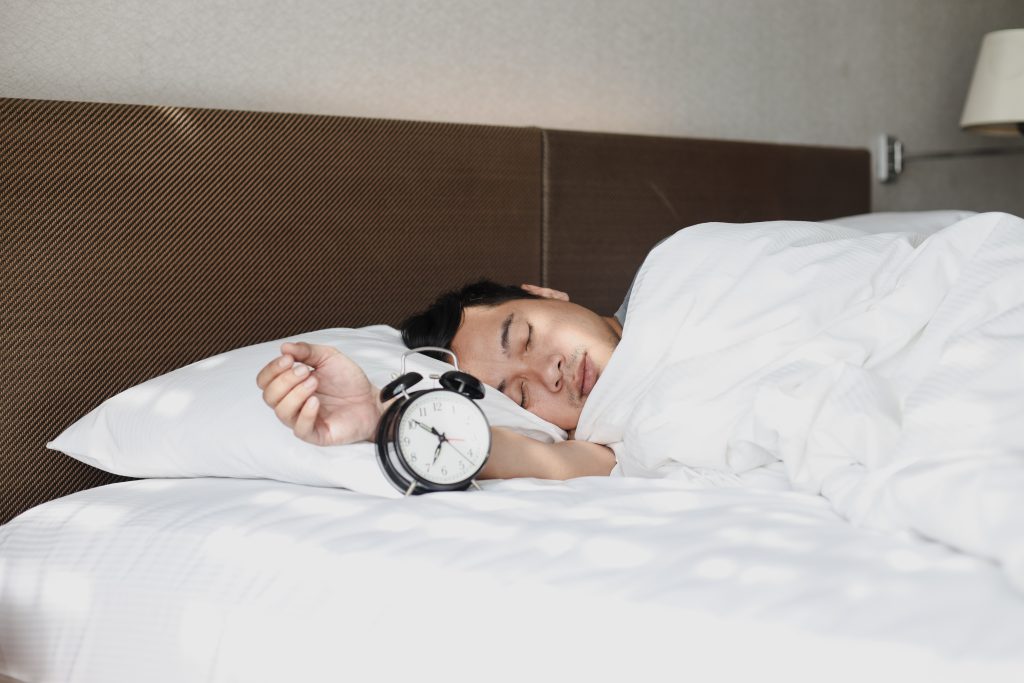Sleep Disorders and Mental Health: The Crucial Connection
Did you know that Australians with insomnia are twice as likely to develop depression compared to those who sleep well? Or that 60-90% of patients with major depressive disorder report significant sleep problems? These aren’t just random correlations—they represent one of the most crucial yet underappreciated connections in healthcare today: the bidirectional relationship between sleep and mental health.
For decades, we’ve treated sleep disorders and mental health conditions as separate entities. Sleep problems were considered merely a symptom of mental health issues rather than a contributing factor. However, emerging research has dramatically changed our understanding, revealing that this relationship flows both ways—poor sleep worsens mental health, and mental health challenges disrupt sleep.
This connection affects Australians of all ages, but particularly impacts our younger population, who face unprecedented sleep challenges in our digitally saturated world. Understanding this crucial relationship can transform how we approach both sleep disorders and mental health care.
The Science Behind Sleep and Mental Health
To appreciate the profound connection between sleep and mental health, we must first understand what happens in our brains during sleep. Far from being a passive state, sleep is a complex, active process involving multiple brain regions and neurotransmitter systems.
During healthy sleep, our brains cycle through different stages, each serving distinct functions:
- Non-REM sleep: Helps consolidate factual memories and restore physical energy
- REM sleep: Critical for emotional processing, creative thinking, and emotional regulation
When these cycles function properly, they help regulate our emotional responses, process the day’s experiences, and prepare us for new challenges. Specifically, healthy sleep supports the brain’s prefrontal cortex—responsible for emotional regulation and rational decision-making—while also regulating the amygdala, our emotional response center.
Recent research from the University of Sydney has revealed that even a single night of poor sleep increases negative emotional responses to mild stressors by up to 60%. Meanwhile, ongoing sleep disruption alters the connectivity between brain regions responsible for cognitive function and emotional regulation.
Professor Matthew Walker from the Centre for Human Sleep Science explains it powerfully: “The best bridge between despair and hope is a good night’s sleep.” This isn’t just poetic language—it’s rooted in neurobiological reality.

Common Sleep Disorders and Their Mental Health Impacts
Sleep disorders don’t just leave you feeling tired—they significantly impact your mental wellbeing. Let’s examine the most common disorders and their psychological effects:
Insomnia
Affecting nearly one in three Australians at some point in their lives, insomnia involves difficulty falling asleep, staying asleep, or waking too early with an inability to return to sleep.
Mental Health Impacts:
- 83% higher risk of developing anxiety disorders
- 3x greater likelihood of developing depression
- Amplified stress responses and emotional reactivity
- Reduced resilience to everyday challenges
Sleep Apnoea
This condition, characterised by repeated breathing interruptions during sleep, affects approximately 5% of Australians, with many cases remaining undiagnosed.
Mental Health Impacts:
- 46% increased risk of depression
- Cognitive impairments resembling early dementia
- Increased irritability and mood instability
- Elevated anxiety levels related to nocturnal breathing difficulties
Circadian Rhythm Disorders
These disorders involve disruptions to the body’s internal clock, often seen in shift workers, individuals with jet lag, or those with delayed sleep phase syndrome (particularly common in adolescents and young adults).
Mental Health Impacts:
- 5x higher risk of mood disorders
- Increased vulnerability to seasonal affective disorder
- Heightened impulsivity and risk-taking behaviours
- Reduced emotional regulation capacity
Restless Legs Syndrome (RLS)
This neurological condition causes uncomfortable sensations and an irresistible urge to move the legs, particularly in the evening and at night.
Mental Health Impacts:
- 2-3x increased risk of depression and anxiety
- Heightened stress due to sleep onset difficulties
- Reduced quality of life and increased frustration
- Secondary anxiety about sleep itself
What makes these connections particularly concerning is that many people don’t recognise their sleep disorder, attributing their mental health challenges to other causes while the underlying sleep issue remains untreated.
How Mental Health Conditions Affect Sleep
The relationship between sleep and mental health runs both ways. Just as sleep disorders can trigger or worsen mental health conditions, psychological challenges significantly impact sleep architecture and quality.
Depression and Sleep
Depression doesn’t just affect mood—it fundamentally alters sleep patterns, typically in one of two distinct ways:
- Hypersomnia: About 15% of people with depression experience excessive sleeping, yet wake unrefreshed
- Insomnia: Up to 80% of those with depression struggle with various forms of insomnia
Research shows that people with depression spend less time in deep, restorative sleep stages and more time in lighter, less restful sleep. The REM cycle, crucial for emotional processing, often occurs earlier in the night and lasts longer—a pattern associated with the rumination and emotional dysregulation characteristic of depression.
Anxiety and Sleep
Anxiety and sleep difficulties form a particularly vicious cycle:
- Racing thoughts and worries make falling asleep nearly impossible
- The anticipatory anxiety about sleep itself creates a self-fulfilling prophecy
- Sleep deprivation heightens the brain’s threat detection systems, increasing anxiety sensitivity
In panic disorder, sleep-onset anxiety can be so severe that individuals fear falling asleep, while generalised anxiety disorder frequently manifests as middle-of-the-night waking with inability to return to sleep.
PTSD and Sleep Disturbances
For those with PTSD, sleep isn’t just difficult—it can be frightening:
- 70-90% report insomnia symptoms
- Nightmares are reported by up to 72% of individuals
- Many develop fear of sleep itself due to nightmares or feeling vulnerable
- REM sleep behaviour disorder (acting out dreams) occurs at higher rates
Bipolar Disorder and Sleep Disruption
Sleep changes are not just symptoms of bipolar disorder—they can be warning signs of phase shifts:
- During manic episodes: A reduced need for sleep, sometimes sleeping as little as 2-3 hours
- During depressive episodes: Either insomnia or hypersomnia
- Between episodes: Lingering sleep disturbances that may predict relapse
Importantly, sleep disruptions often precede mood episodes, suggesting they may be triggers rather than just symptoms.
The Vicious Cycle: How Poor Sleep Worsens Mental Health and Vice Versa
Perhaps the most challenging aspect of the sleep-mental health relationship is its self-reinforcing nature. This creates a cycle that’s particularly difficult to break without targeted interventions addressing both sides of the equation.
“The relationship between sleep and mental health is not simply a one-way street, but rather a complex bidirectional highway where difficulties in one area inevitably affect the other.”
– Dr. Alex Sweetman, Sleep Health Foundation Australia
This cycle often begins subtly. Perhaps stress leads to a few nights of poor sleep, which then impairs emotional regulation, making daily stressors seem more overwhelming. This increased stress further disrupts sleep, and gradually, what began as temporary sleep difficulties evolves into chronic insomnia and potential anxiety or depression.
For young adults, this cycle can be particularly destructive. With developing brains more sensitive to sleep deprivation and social pressures often delaying bedtimes, many young Australians find themselves caught in a sleep-mental health spiral during crucial developmental periods.
The long-term consequences of this unaddressed cycle are significant:
- Increased risk of developing treatment-resistant depression
- Higher rates of substance use as self-medication
- Poorer academic and occupational performance
- Increased risk of physical health problems, including cardiovascular disease and diabetes
- Greater overall healthcare utilisation and costs
Breaking this cycle typically requires addressing both sleep and mental health simultaneously, rather than focusing on just one aspect.

Digital Age Challenges to Sleep
The digital revolution has transformed nearly every aspect of our lives—including our sleep. While technology offers many benefits, it has created unprecedented challenges to healthy sleep patterns, especially for younger Australians.
The Blue Light Problem
Our screens emit blue wavelength light that directly impacts our circadian biology:
- Suppresses melatonin production by up to 50%
- Delays sleep onset by 1-3 hours in regular nighttime users
- Reduces REM sleep even after the device is turned off
- Creates a phase delay in the circadian rhythm, making it harder to wake refreshed
Recent research from the University of Adelaide found that 70% of Australian teenagers use electronic devices in the hour before bed, with each device used associated with an average 11-minute delay in sleep onset.
Social Media’s Double Impact
Social media affects sleep through multiple mechanisms:
- Psychological arousal: Engaging, emotionally stimulating content keeps the mind active
- FOMO (Fear of Missing Out): Creates anxiety about disconnecting
- Time displacement: Simply replacing sleep time with screen time
- Content anxiety: Exposure to stressful news or social comparisons before bed
A 2023 study published in the Medical Journal of Australia found that young adults who use social media for more than two hours daily were 2.7 times more likely to report poor sleep quality and 1.8 times more likely to report symptoms of anxiety or depression.
The Unique Challenge for Gen Z and Millennials
Younger generations face sleep challenges unknown to previous generations:
- First generations to grow up with 24/7 connectivity and notifications
- Higher rates of “revenge bedtime procrastination”—delaying sleep to reclaim personal time
- Greater exposure to peer sleep behaviours through social media, normalising poor sleep habits
- Unprecedented exposure to artificial light throughout the evening
These challenges help explain why, despite having fewer responsibilities than older adults, younger Australians report some of the highest rates of sleep dissatisfaction and sleep-related mental health issues.
Evidence-Based Strategies for Better Sleep
Improving sleep quality doesn’t require prescription medications or complex interventions. Research has identified numerous evidence-based strategies that can significantly improve sleep quality and, by extension, mental wellbeing.
Sleep Hygiene: The Foundation
Sleep hygiene—the practices and habits conducive to sleeping well—forms the foundation of good sleep:
- Consistent schedule: Go to bed and wake up at the same time daily, even on weekends
- Sleep-promoting environment: Keep your bedroom dark, quiet, cool (18-20°C), and free of screens
- Bedtime routine: Develop a 30-60 minute wind-down ritual (reading, gentle stretching, warm bath)
- Daylight exposure: Get at least 30 minutes of natural light early in the day
- Limit stimulants: Avoid caffeine after midday and alcohol within 3 hours of bedtime
Research from Monash University shows that implementing just three basic sleep hygiene practices improves sleep onset by an average of 37 minutes and reduces nighttime waking by 44%.
Cognitive Techniques for Sleep Improvement
When racing thoughts or anxiety interfere with sleep, these cognitive approaches can help:
- Scheduled worry time: Set aside 15 minutes earlier in the day for worrying, then postpone bedtime worries to tomorrow’s worry session
- Cognitive restructuring: Identify and challenge catastrophic thoughts about sleep (“If I don’t sleep well, tomorrow will be a disaster”)
- Paradoxical intention: Rather than trying to force sleep, try to stay awake with eyes closed
- Mindfulness meditation: Brief practices focusing on breath or body sensations can reduce pre-sleep arousal by 27%
Lifestyle Factors That Impact Sleep Quality
Sleep doesn’t happen in isolation—it’s influenced by our daytime activities:
- Exercise: 150 minutes of moderate activity weekly improves sleep quality by 65%, but avoid vigorous exercise within 1-2 hours of bedtime
- Nutrition: Reduce sugar and refined carbohydrates, which can disrupt sleep architecture
- Hydration: Stay hydrated throughout the day, but reduce fluids 1-2 hours before bed
- Light management: Use apps that filter blue light after sunset, and consider blue-light blocking glasses in the evening
For those already experiencing significant sleep difficulties, these foundational approaches may be supplemented with more structured interventions under healthcare guidance.
When to Seek Professional Help
While self-help strategies are effective for mild to moderate sleep issues, certain signs indicate the need for professional intervention:
Warning Signs That Indicate Professional Help Is Needed
- Sleep difficulties occurring at least three nights per week for over three months
- Feeling unrefreshed despite adequate time in bed
- Excessive daytime sleepiness or falling asleep unintentionally
- Loud snoring, gasping, or breathing pauses during sleep (reported by a partner)
- Sleep problems accompanied by significant mood changes or suicidal thoughts
- Sleep difficulties causing significant distress or impairment in daily functioning
The Australian Healthcare Pathway
If you’re experiencing concerning sleep issues, here’s how to access appropriate care:
- General Practitioner: Your GP can assess your sleep concerns, screen for related medical conditions, and refer you to specialists if needed
- Sleep Specialist: Respiratory and sleep physicians specialise in sleep disorders diagnosis and treatment
- Sleep Clinic: For comprehensive assessment, including potential sleep studies
- Psychologist: For cognitive behavioural therapy for insomnia (CBT-I), the first-line treatment for chronic insomnia
- Psychiatrist: When sleep disorders co-occur with significant mental health conditions

What to Expect from a Sleep Assessment
A comprehensive sleep assessment typically includes:
- Detailed sleep history and sleep diary review
- Screening for medical and psychiatric conditions
- Questionnaires assessing sleep quality, daytime functioning, and related symptoms
- Possibly sleep studies, which may include:
- Polysomnography: Overnight monitoring in a sleep clinic
- Actigraphy: Wrist-worn device tracking movement over several days
- Home sleep apnoea testing: Simplified monitoring focused on breathing during sleep
Many private health insurance plans cover aspects of sleep assessment and treatment, and Medicare provides rebates for certain sleep services when referred by a GP.
Emerging Research and Future Directions
The field of sleep medicine is evolving rapidly, with exciting developments on the horizon:
New Understanding of Sleep’s Role in Mental Health
Recent discoveries are reshaping our understanding of sleep’s fundamental importance:
- The glymphatic system—the brain’s waste clearance mechanism—is primarily active during deep sleep, potentially explaining links between sleep disorders and mood disorders
- Sleep plays a critical role in emotional memory processing, helping us integrate difficult experiences
- REM sleep appears crucial for dampening the emotional charge of painful memories
Promising Treatment Approaches
Innovative treatments currently being researched include:
- Chronotherapy: Strategic manipulation of sleep timing and light exposure to reset circadian rhythms
- Targeted memory reactivation: Using specific sounds during deep sleep to enhance memory consolidation
- Sleep and circadian rhythm interventions as preventative approaches for those at high risk of developing mental health conditions
- Transdiagnostic sleep interventions that address sleep issues regardless of which mental health condition they accompany
Technology’s Role in Sleep Health
Digital technology, while often problematic for sleep, may also offer solutions:
- AI-driven sleep tracking that provides personalised recommendations
- Smartphone-delivered CBT-I programs showing efficacy comparable to in-person therapy
- Smart home integration for automated sleep-promoting environments (temperature, lighting, noise)
- Virtual reality relaxation environments for pre-sleep wind-down
Research from the Black Dog Institute suggests that digital sleep interventions may be particularly effective for younger Australians, who often prefer technology-mediated healthcare options.
Conclusion: Sleep as a Pillar of Mental Wellbeing
The evidence is clear: sleep is not a luxury or a separate health domain—it’s a fundamental pillar of mental wellbeing. The bidirectional relationship between sleep and mental health means that addressing sleep issues can create positive ripple effects throughout your psychological landscape.
For young Australians facing unprecedented challenges to healthy sleep, prioritising sleep hygiene isn’t self-indulgence—it’s essential self-care with profound implications for mental health resilience. For older adults, addressing long-standing sleep issues may unlock improvements in mood, cognition, and quality of life that medication alone hasn’t achieved.
The good news is that sleep improvements often yield rapid benefits. Research shows that even modest sleep quality enhancements can reduce anxiety symptoms within days and depressive symptoms within weeks. Unlike many mental health interventions, sleep improvements can create noticeable differences quickly, providing motivation to maintain positive changes.
As we continue to learn more about this crucial connection, one thing becomes increasingly clear: any comprehensive approach to mental health must include attention to sleep quality. Whether you’re struggling with diagnosed mental health conditions or simply seeking to optimise your psychological wellbeing, improving your sleep may be one of the most powerful steps you can take.
Don’t wait until sleep problems significantly impact your mental health or vice versa. Begin implementing evidence-based sleep strategies today, and if you’re experiencing concerning symptoms, reach out to healthcare professionals who can provide personalised guidance. Your future mental wellbeing may depend on the quality of sleep you’re getting tonight.
This article is intended for educational purposes only and does not constitute medical advice. If you’re experiencing symptoms of a sleep disorder or mental health condition, please consult with qualified healthcare professionals.



